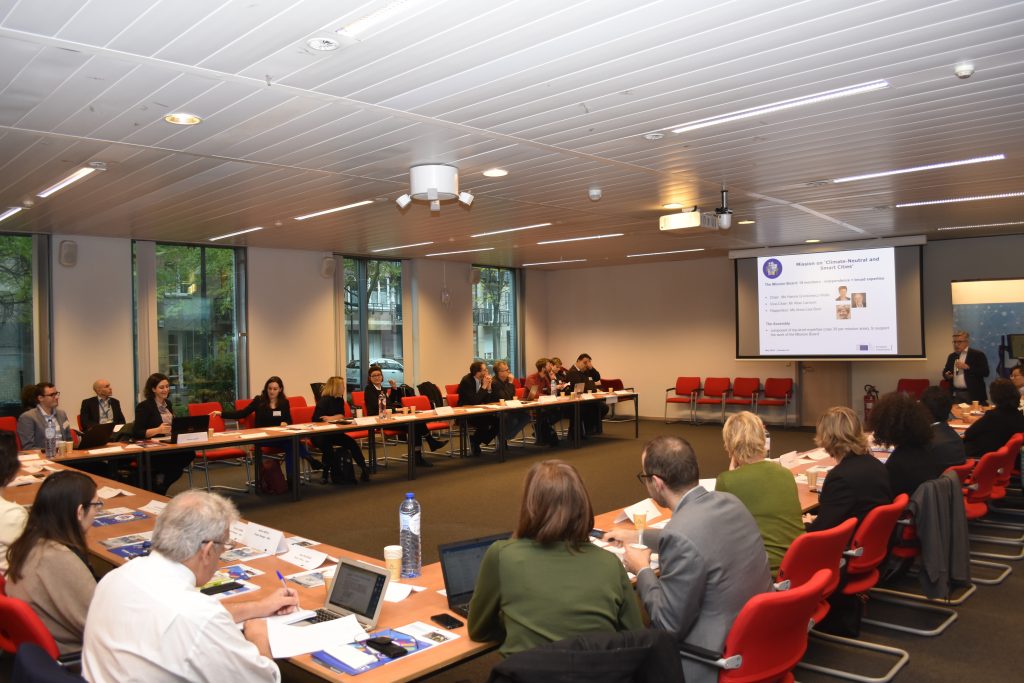On 19 November 2019, the cluster workshop ‘Co-creating Urban Mobility in Neighbourhoods’ was held at the Innovation and Networks Executive Agency (INEA) in Brussels
Organised by CIVITAS and INEA, the event gathered four EU-funded mobility projects working on co-creation at the neighbourhood level.
The first session saw project coordinators of Cities4People, METAMORPHOSIS, MUV and SUNRISE present the projects’ statuses, challenges and lessons learnt.
Local project partners then presented how the co-creation approach had impacted mobility plans in different European cities. Representatives from Bremen (Germany), Budapest (Hungary), Gent (Belgium), Malmö (Sweden), Merano (Italy), and Tilburg (the Netherlands) engaged in this discussion.
Two morning sessions saw active discussions in which participants agreed that the projects’ most important legacies are lessons learnt concerning the best ways to approach local communities and build trust among them during the co-creation process.
There was also consensus on the value of using different co-creation approaches to compare and analyse the best tools and methods to involve citizens in discussions on local mobility.
Furthermore, participants raised questions regarding managing expectations concerning community involvement and the prioritisation of citizen’s needs. Event moderator Meia Wippoo from Waag mentioned that the experience in co-creation and the community knowledge allows decision-makers to tackle this kind of challenges.
The workshop also gave an opportunity to hear the views of the European Commission (EC). Alan Haigh, Head of the Energy and Transport Department, INEA, expressed the EC’s interest in supporting the development and implementation of neighbourhood and urban district level transport innovation. He also emphasised the importance of the EC acknowledging the barriers, challenges, and potential of the co-creation approach in future EU Research calls.
For the first time, partners in the different projects gathered in a World Café session to discuss topics such as engaging the political level, consultation fatigue, hard-to-reach groups and other co-creation challenges in. Other topics discussed were ways to approach vulnerable user groups, different techniques to engage citizens, and methods for evaluating co-creation projects.

The conclusions from the World Cafe session can be found here and below, whilst conclusions on participation techniques and tools can be seen here and below.
The workshop ended with closing words Marcel Rommerts, INEA, who highlighted the importance of co-creation for building better cities for people. He explained how this approach contributes to consensus building and the application of tailor-made tools, both crucial elements in the development of Successful Urban Mobility Plans.
He also mentioned some important aspects to consider, such as the long-term results and the limitation of the approach. He added that though “co-creation might not be a magic tool suitable to solve all mobility issues” it’ is an excellent method to build policies that are not only effective but also highly accepted by people.
Find out more on the projects on their respective websites: Cities4People, METAMORPHOSIS, MUV.